Wu-Tang Clan's 25 Greatest Albums and Side-Projects Ranked
As 'Enter the Wu-Tang (36 Chambers)' turns 30, we're counting down the collective's best LPs, including solo releases
The Staten Island crew — comprised of the core lineup of Ghostface Killah, GZA, Inspectah Deck, Masta Killa, Method Man, Ol' Dirty Bastard, Raekwon, RZA and U-God — are one of the most iconic acts in the history of music. Their yellow W logo has become nearly as recognizable as those of brands like Coke or Pepsi, and they constant point of reference in pop culture, from movies to music to video games to television, including their own semi-autobiographical Hulu series Wu-Tang: An American Saga and a classic fighting game on the original Playstation with 1999's Wu-Tang: Shaolin Style.
For this list, we have assembled and ranked the 25 best Wu-Tang Clan releases, both as a group and solo, from the nine original members (sorry, Cappadonna — The Pillage is incredible but won't be making the cut).
25. Raekwon
The Lex Diamond Story (2003)
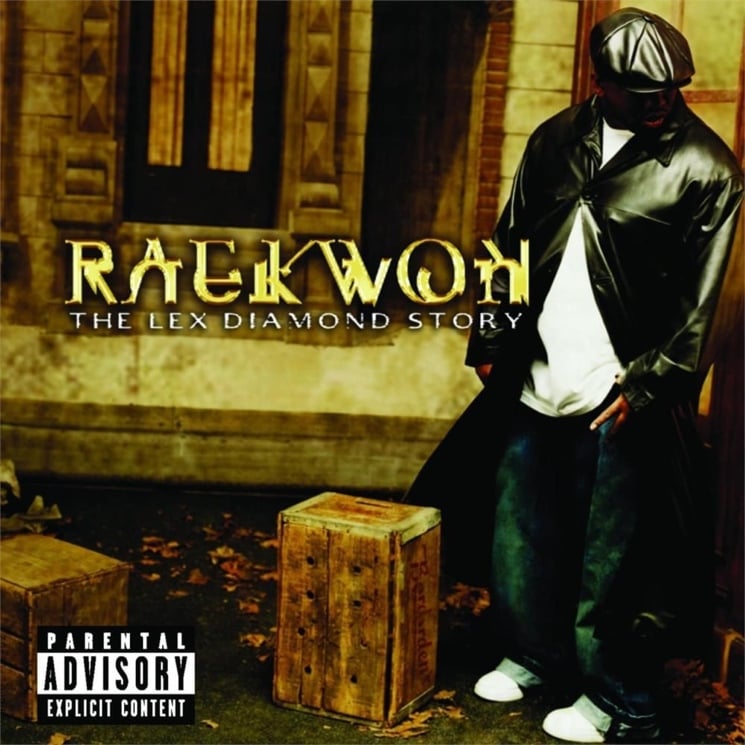
After the disappointing sophomore slump that was Raekwon's 1999 album Immobilarity, he went back to the lab and brought forth The Lex Diamonds Story. It may not have been the perfect return to form he or his fans had hoped for, but it remains a solid, under-appreciated effort that features some of Rae's best tracks.
"All Over Again" is an upbeat, reflective cut that sees Rae celebrating his come-up, with a warm, pitched-up Delfonics sample serving as the hook. "Clientele Kidd" finds Rae trading verses with Fat Joe and longtime partner in rhyme Ghostface Killah (who was noticeably absent on Immobilarity) with Polite handling hook duties. While there are some undeniable lows, like "Wyld in the Club," the album's high points more than make up for them.
24. Method Man
Tical 2000: Judgement Day (1998)
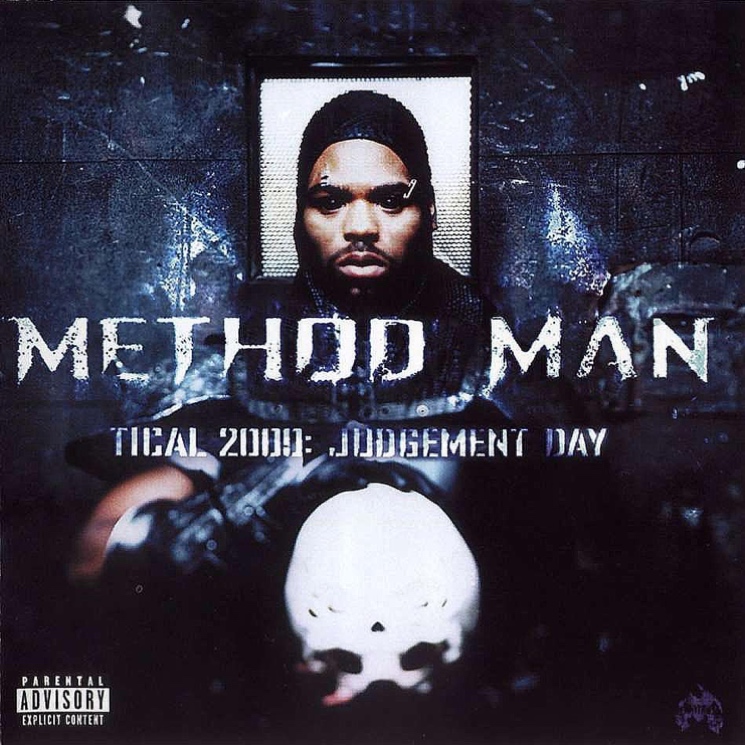
There is a great album trapped in the bloated 28-track behemoth that is Tical 2000: Judgement Day. It gets bogged down by the nine skits, the over-reliance on Streetlife to serve as the Ghostface to Meth's Raekwon, and a couple of musical misfires. Had he cut down the unnecessary skits (ideally to a total of zero) and relegated Streetlife's role from costar to another supporting cast member, Meth would have had something truly special on his hands.
The production is solid throughout, each featured artist does their respective thing (though Left Eye is under-utilized on "Cradle Rock"), and Meth shows that he can still get as gritty as the next Wu member. He also showcases a mastery of the R&B collaboration, with the D'Angelo-assisted "Breakups 2 Makeups" being arguably the best track here. Tical 2000 is a solid solo release from the Iron Lung that ultimately gets in its own way a bit too much to be anything more.
23. GZA
Beneath the Surface (1999)
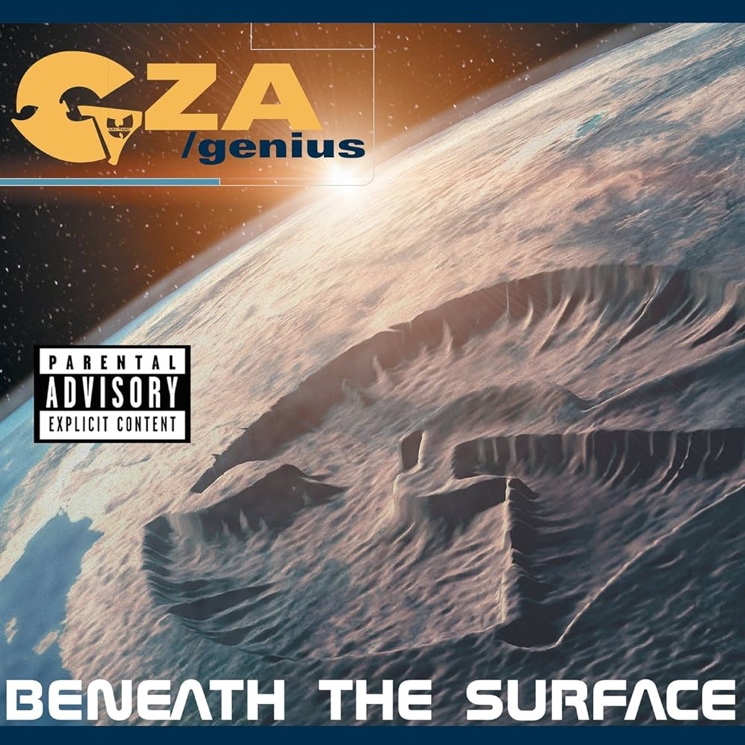
GZA is in the top 0.01% of rappers to have ever lived, but behind the boards, he had not quite reached that level of mastery by the time 1999's Beneath the Surface was being recorded. This LP sees an unfortunate zero contributions from RZA on the production side of things, with GZA handling a good amount of tracks here; a few others, namely Wu affiliate Mathematics, handle the rest to underwhelming results. The one outlier to this is the title track's unexpectedly excellent instrumental provided by Inspectah Deck (the most underrated MC in the Clan also delivers the best instrumental on the whole record).
For an artist known for his concise and pointed lyricism, and being a man who seemingly always has a plan, GZA turns in an album held back by some unnecessary filler and skits that serve little to no purpose. It's not a bad record, but it's a far cry from the prowess that GZA showcased with his previous effort, the incomparable Liquid Swords, lacking that level of cohesion and stumbling over itself a few times before reaching the finish line. It's ultimately a fine record beyond those issues, but not the front-to-back listen one would expect from the man known as the Genius.
22. Ghostface Killah, Method Man and Raekwon
Wu-Massacre (2010)
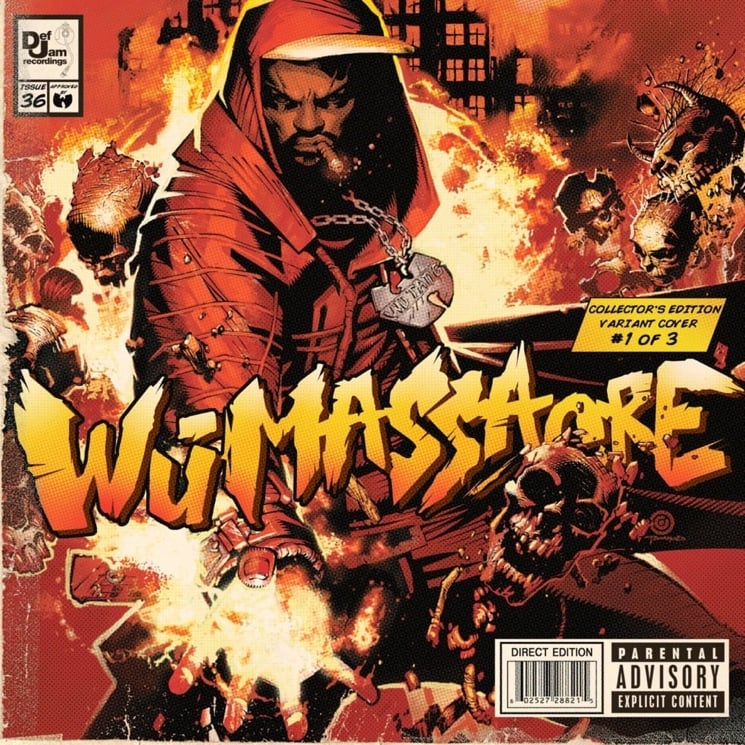
This 2010 collaboration between Wu-Tang's "Big Three" harkens back to the height of the crew's heyday. There's no pair of MCs, in the Clan or otherwise, who complement each other better than Raekwon and Ghostface Killah. Adding Method Man's dynamic, versatile flow to the mix was a recipe for success. Kicking off with sequel songs that live up to their original counterparts in "Criminology 2.5" and "Meth vs. Chef 2," the album then delves into all-new music from the trio that fits right in with the rest of their catalogue.
Wu-Massacre truly feels like a legendary trio coming back to show the world how they obtained their status atop the game, like the 2014 San Antonio Spurs nabbing their final championship with the aging Tim Duncan, Tony Parker and Manu Ginobili. It's a masterclass fronted by three all-time greats and manages to feel fresh while simultaneously exemplifying that classic Wu-Tang spirit.
21. Wu-Tang Clan
Iron Flag (2001)
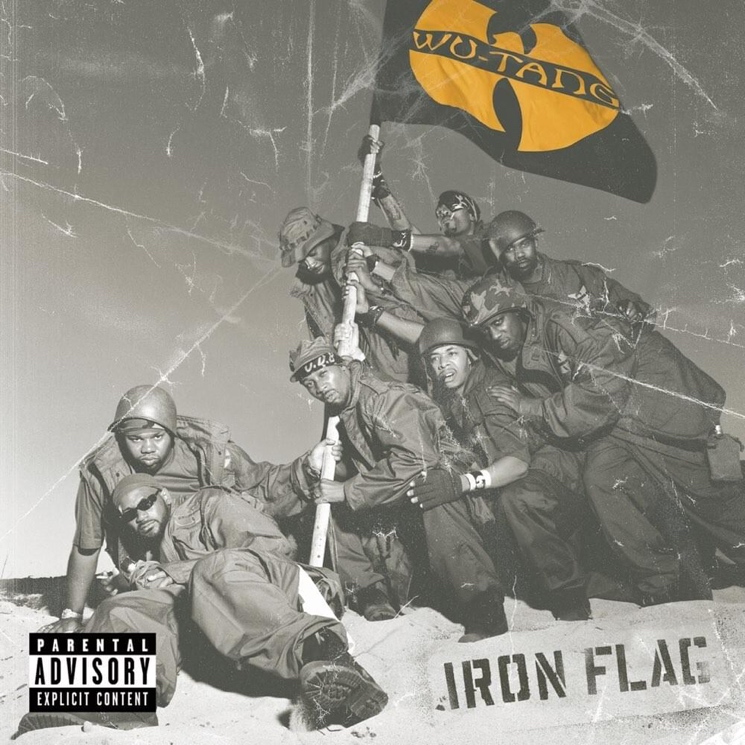
Released a little over a year after its predecessor, 2000's The W, Iron Flag is a bit of a mixed bag that still feels like a celebration of the group's run to that point. Though this is the album that sees RZA's spark seemingly fizzle out, with him crafting a handful of instrumentals that sound like they could be found by punching "RZA type beat" into a YouTube search bar, he still delivers some variety. He interestingly channels a few different eras of his production here, with the instrumental for "Chrome Wheels" being a standout due to RZA embracing his Bobby Digital sound out of nowhere.
On the rapping front, the most notable factor is the absence of Ol' Dirty Bastard, who is nowhere to be found after just barely being present on their last record, and Cappadonna delivering only a single hook after The W had him feeling like an official member. Alternatively, Ghostface, Raekwon and Inspectah Deck pull no punches, making the most of their contributions. It's ultimately a worthwhile listen, though it never overachieves or brings forth the "wow" factor that the Clan's previous three albums held to varying degrees.
20. Masta Killa
No Said Date (2004)
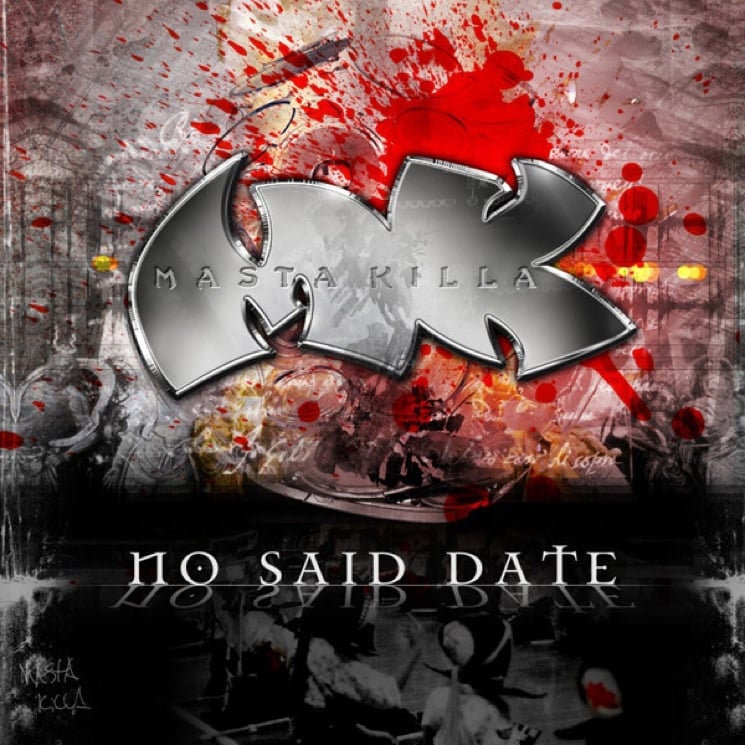
Masta Killa's long-awaited, highly anticipated debut was released nearly 11 years after fans first got acquainted with the signature pairing of his sharp lyrics and laid-back, monotone flow on 36 Chambers. While it's a near-impossible task to live up to over a decade of hype, Masta Killa does well here to largely meet expectations.
The only real drawback is that, while most of the Clan's other members had seen over a decade of artistic growth and maturity by this point, Masta Killa's No Said Date feels like it would've sounded nearly identical had it been released a week after the group's debut. Still, this is one of the more interesting and introspective debut albums from anyone in the Clan, and an enjoyable effort overall. Masta Killa deserves a lot of praise for dropping a solo debut of this quality, especially being over a decade removed from 36 Chambers.
19. Ghostface Killah
Twelve Reasons to Die (2013)
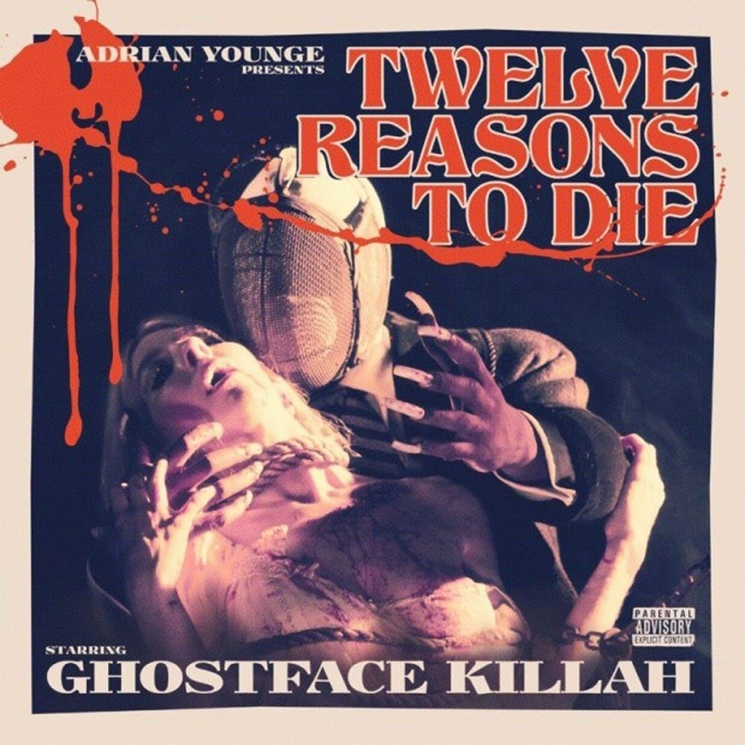
There are very few artists, especially 20 years into a well-established and acclaimed career, who would take a hard right into experimental territory like this – but Ghostface Killah is not most artists.
In a tale scored solely by Adrian Younge, Ghost paints the portrait of Tony Starks, a member of the DeLuca crime family. It traces his assassination at the hands of his henchmen, stemming from a failed attempt at running his empire and falling for the daughter of the family Kingpin. His remains, melted to wax, are used to press 12 vinyl records that when played, resurrect Starks as Ghostface Killah, a spirit who serves only one purpose: to exact revenge.
Ghostface has always had a flair for the extravagant, but this project sees him delving into the concept with the commitment of Daniel Day-Lewis and the vision of a seasoned director. Younge's carefully crafted soundscape is immaculate and perfectly captures the feel of the story, giving Ghost the perfect backdrop to serve up this deep-career home run.
18. CZARFACE
Every Hero Needs a Villain (2015)
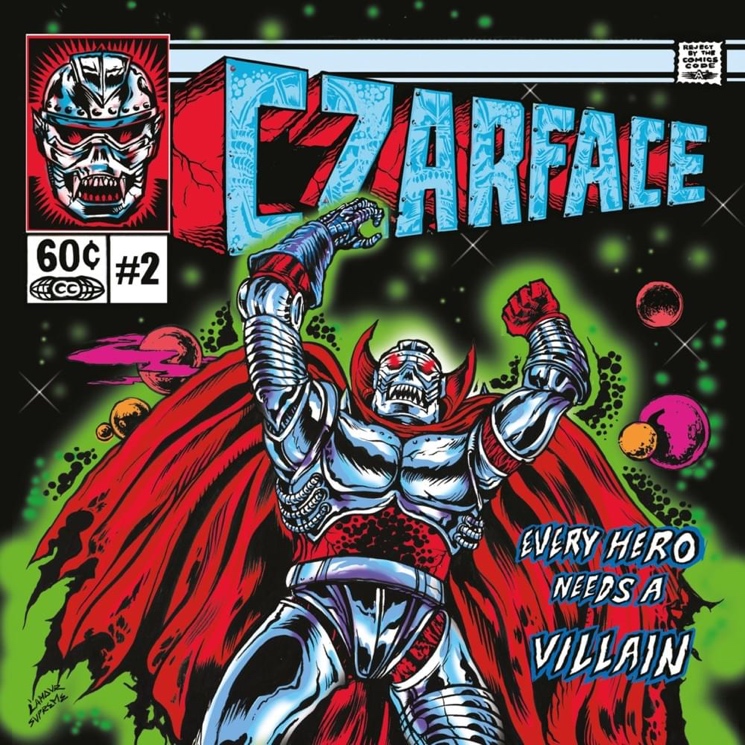
The second leg of Inspectah Deck's career as one-third of CZARFACE alongside the Boston-bred MC/producer duo 7L & Esoteric, has been incredibly fruitful for fans of the group's most underrated member. Two decades removed from the success of 36 Chambers, Deck kickstarted a decade-long run of records ranging from solid to excellent, encapsulating the characteristics of early Wu releases, comic book influences, and a penchant for incredible wordplay from the pair of Deck and Esoteric.
Every Hero Needs a Villain is the trio's best record, a highlight in an ever-growing catalogue of fantastic releases. Tracks like the "When Gods Go Mad" and "Nightcrawler," the former featuring GZA and the latter with an incredible verse from Method Man, deserve to be mentioned in the pantheon of all-time great Wu-Tang cuts. The excellent "Ka-Bang!" featuring the late MF DOOM kickstarted a partnership between the masked villain and the superhero-themed trio that resulted in a short-lived but very fruitful collaborative relationship that now includes two full-length LPs. It took Deck a while to find his niche, but his work with CZARFACE continues to produce standout albums that also fit right in under the Wu-Tang umbrella.
17. Ghostface Killah feat. Raekwon
Bulletproof Wallets (2001)
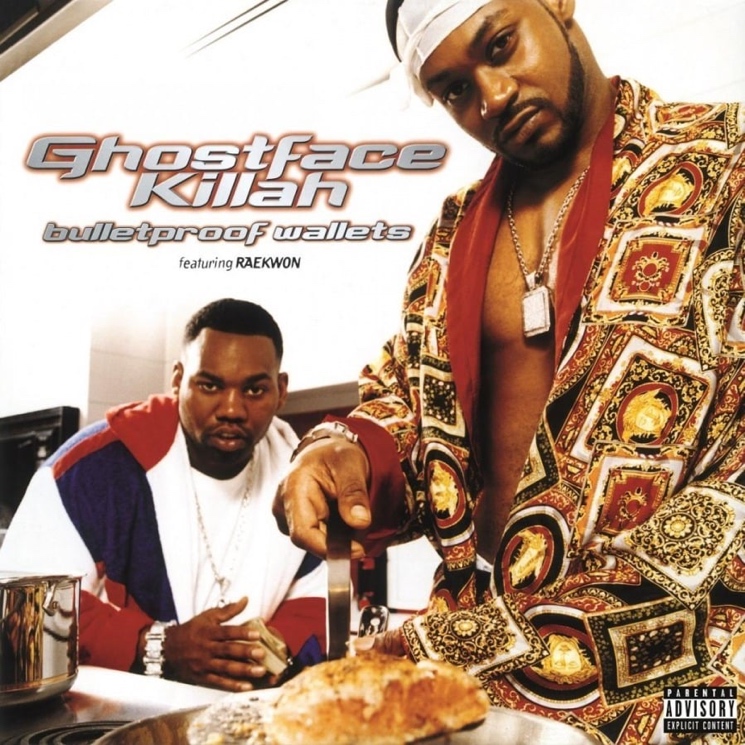
Bulletproof Wallets is an album that, upon release, suffered from having to follow Ghost's magnum opus, Supreme Clientele. It's unfortunate, because this is the album where he begins to lean a little more into his unbridled love for R&B and soul music while maintaining a sound and style that's authentic to his established style.
Gone are the chopped string sections and muddied movie samples — Ghostface instead relishes in the aura he'd built for himself on his more glamorous cuts to this point, serving as a fly party album, soaked in a scintillating swagger and oozing charisma. In freeing itself from the darkness that characterized many previous Wu releases and opting for a sound much sunnier in comparison, Ghost opens up space for himself to explore a variety of cadences and a well of topics that he'd not been able to handle with such care to this point.
16. Wu-Tang Clan
The W (2001)
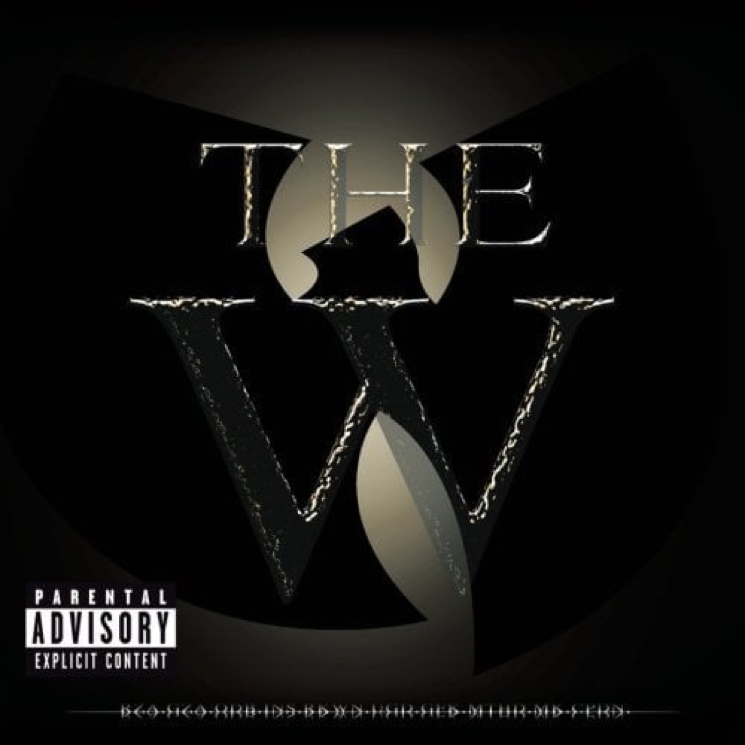
Despite this being the first Wu album that feels like the Clan are having an increasingly difficult time coming together (ODB, for example, only contributes to one song here), The W is still one of the best albums they've crafted as a unit. With its back-to-basics approach, RZA once again helms the bulk of the production, showcasing a mastery of the style he created.
Additionally, the members present for the record prove that their creativity is boundless when they reunite, as they elevate each other with every verse. While the album does suffer from most of the best tracks appearing in the first half, the second half is still solid enough to stick the landing and makes for a worthwhile addition to Wu-Tang's collective discography.
15. RZA
RZA as Bobby Digital in Stereo (1998)
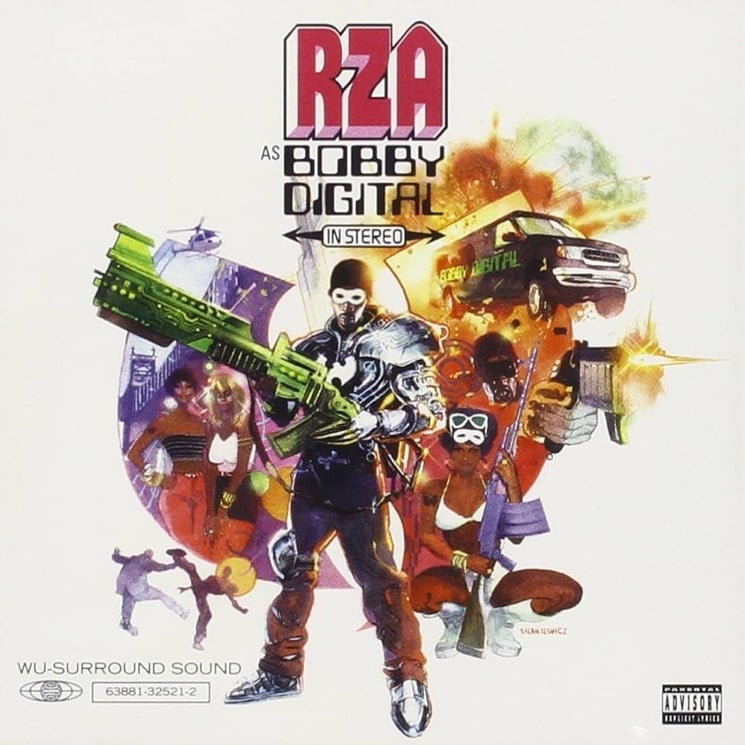
Divisive among fans and poorly received upon release, time has been kind to RZA's 1998 attempt at a futuristic-sounding rap album.
Bobby Digital in Stereo is admittedly flawed, but therein lies this record's charm. As the producer behind the signature Wu-Tang sound, it would have been simple for RZA to stash away some of his best beats to bolster his solo debut with instrumentals fans would love, but he instead chose to experiment in a major way. In creating the comic book-esque alter ego of Bobby Digital, RZA crafts a concept album dabbling in all things computerized.
The production on this album can be jarring and, at some points, absolutely terrible. but there's something intriguing about how the sound elevates what RZA was attempting, despite how unpleasant it can be on the ears. It's almost as if the world he's building is dystopian — a wasteland built on the bygone sound that he created, which has now been overtaken by synthesizers and Casio keyboards.
There are some admittedly tough moments to listen to, but cuts like "NYC Everything" or "Lab Drunk" see RZA's bizarre but distinct vision coming together. It's far from a perfect record, but it is one of the more intriguing listens in the Wu-Tang anthology, and that alone earns it a spot on this list.
14. Ghostface
The Pretty Toney Album (2004)
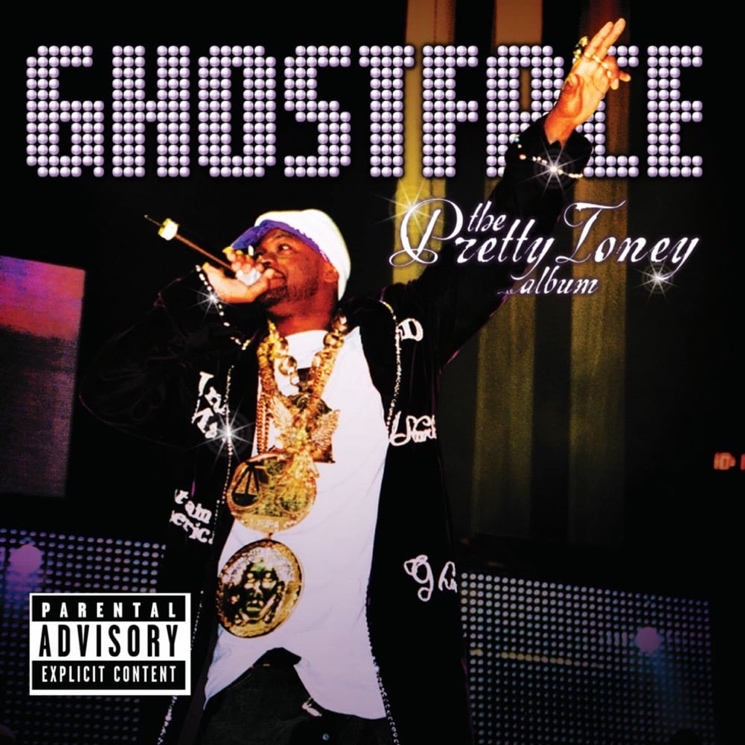
With The Pretty Toney Album, Ghostface drops the "Killah" from his name, and while it may seem like an arbitrary change, it's very fitting for the first record that sees him spread his wings beyond Wu-Tang Clan. Sure, RZA has a couple of production credits, but this is the first album that has zero features from any members of the Clan, allowing Ghostface to freely explore his range, as well as having him experiment with his flow and vocal inflections in new and fascinating ways.
Lyrically, Ghost is as sharp as ever, but he finds some otherworldly pockets on this record. Whether playing keep-up with the shaking tambourine buried in the background of "It's Over" or the double-time flow he tries out on the first verses of the Missy Elliott-assisted "Tush," Ghost feels extremely comfortable exploring different deliveries on this record and is endlessly inventive in how he infiltrates every instrumental here.
13. Raekwon guest starring Ghostface Killah
Only Built 4 Cuban Linx... Pt. II (2009)
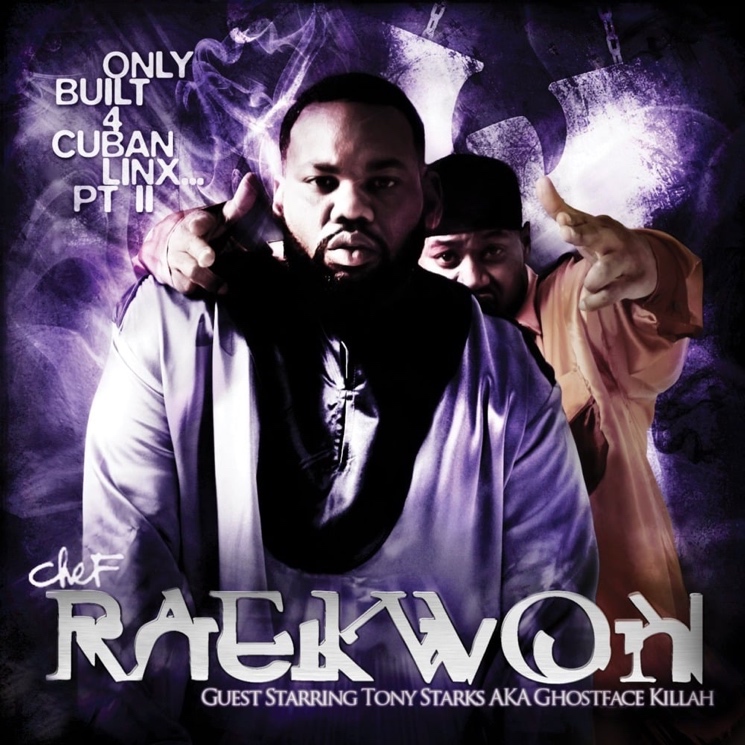
One of the best sequel albums in hip-hop history, OB4CL2 is also likely the one that was the most necessary to protect an artist's legacy. Rae was a decade-plus removed from releasing one of the most celebrated albums in hip-hop history, with his two subsequent releases failing to meet the standard he'd set.
The original OB4CL saw Rae partnering with Ghostface over an expertly crafted soundscape from RZA, while the two albums after housed a collective total of one Ghostface verse and zero RZA contributions. It seemed as if the rapper known as the Chef was trying to see what he could cook up on his own, only to serve an under-seasoned sophomore album and third release that mimicked the original recipe but was missing some key ingredients.
With OB4CL2, Rae managed to serve a dish just a few pinches of salt short of delivering the same incredible flavour as the first. With Ghostface back as sous-chef, the two take listeners on a ride, reassuring fans that they are as incredible a duo as ever and delivering a worthy successor to the flawless original. At a point where Rae's back was against the wall, with many fans wondering if he could ever reach those heights again, he delivered on nearly every front.
12. Inspectah Deck
Uncontrolled Substance (1999)
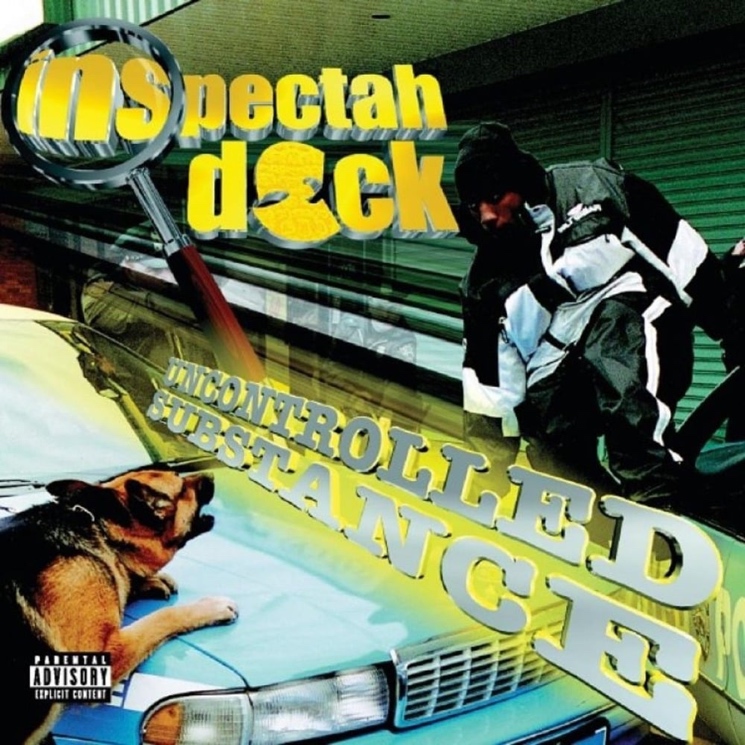
Inspectah Deck has always been the underrated, unsung hero of the Clan. He has, on numerous occasions, been the highlight verse on a Wu-Tang song, with 1997's "Triumph" being the prime example. It's a shame that it took so long for him to get his solo record considering his contributions to the group; however, when Uncontrolled Substance finally did release, it was yet another incredible showing for the Rebel INS.
With Uncontrolled Substance, he finally got to stake his claim as one of the best lyricists not only in the group but in the genre. Even when the production is painfully subpar, Deck's prowess behind the microphone can elevate a track immensely. Had the gap between the release of Wu-Tang Forever and this LP been smaller and RZA contributed a few additional instrumentals, this album could've had Deck in a different stratosphere, getting the love he deserves as one of the Clan's best.
11. Method Man and Redman
Blackout! (1999)
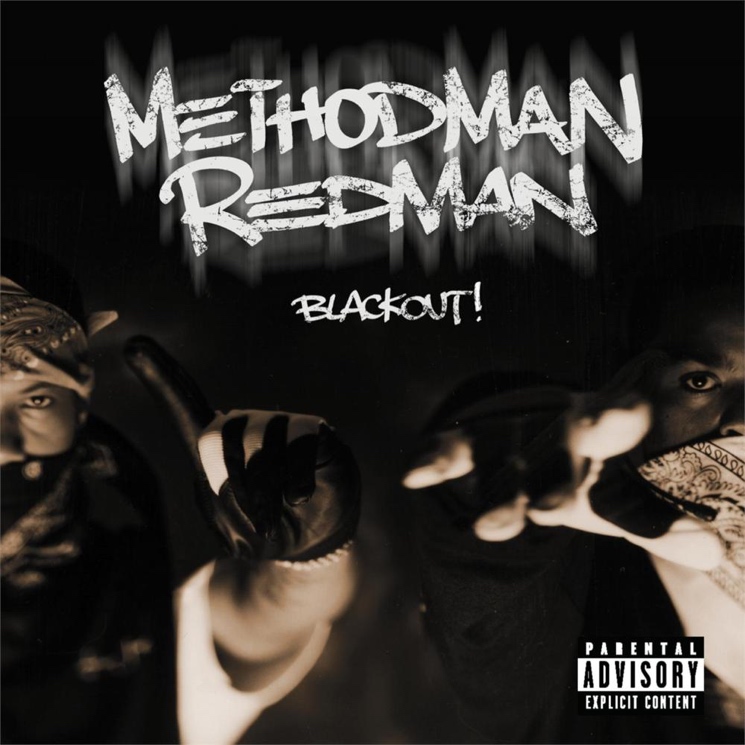
Method Man was always a standout member of the Clan, no matter who he hopped on a song with — but, in pairing up with Def Squad's Redman, he truly found his match.
Today, it's impossible to think of one of these two without the other; they're seemingly a packaged deal in a lot of ways, with multiple albums together, movies, a prematurely cancelled TV show and more, and all of that stems from the chemistry displayed on this album. This is undoubtedly one of the best collaborative records in hip-hop history. The quick wit and ludicrous lyrics of Redman pair incredibly well with the effortless yet impeccable flow Method Man possesses.
The two complement each other perfectly, as if they were meant to do this together. From the iconic lead single "Da Rockwilder" to the tongue-in-cheek "Cereal Killer" to the subdued bounciness of "Y.O.U.," the pair consistently elevate one another, matching each other's energies and crafting records that are unbelievably fun while being impressive lyrical showcases only they can provide.
10. Ghostface Killah
Fishscale (2006)
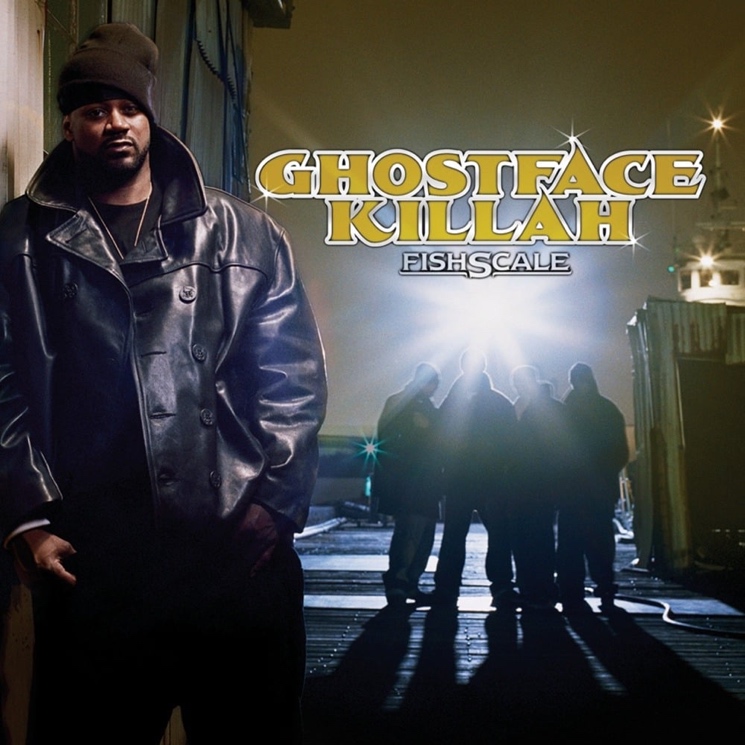
Fishscale is Ghostface at his most refined and self-assured. After a decade with a reputation as one of the genre's absolute best, he was aware of his status and used this LP to prove exactly why and how he had attained it.
The concept of a rap album focused on drug dealing is nothing new, but Ghost takes it to new heights with a barrage of lyrically dense, day-in-the-life tales that never falter across the album's 23-song tracklist. Everything about this record feels meticulous and purposeful, with even its most commercial attempts feel right at home within the confines of the album.
9. Method Man
Tical (1994)
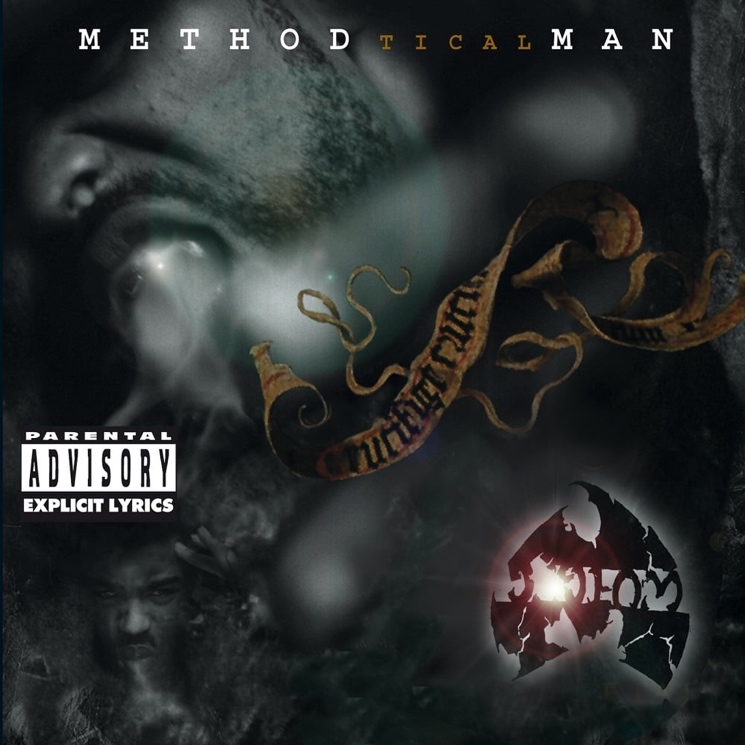
While this one didn't quite live up to its potential, considering the hype following 36 Chambers and the fact that Meth was anointed the group's star pretty much from their inception, it remains an incredible debut.
It's clear that RZA was either rushed to meet a deadline or had an uncharacteristic amount of trouble mixing and mastering the record, but this adds to the hazy aesthetic present in the album's artwork and Meth's raspy voice. Tracks like "Bring the Pain" and "P.L.O. Style" showcase him at his grimiest, bouncing all over the instrumentals with the utmost ferocity, while the seminal "All I Need" showcases an earnest, loving side to Meth, one that's tender while remaining tonally consistent with the rest of the album.
8. Gravediggaz
6 Feet Deep (1994)
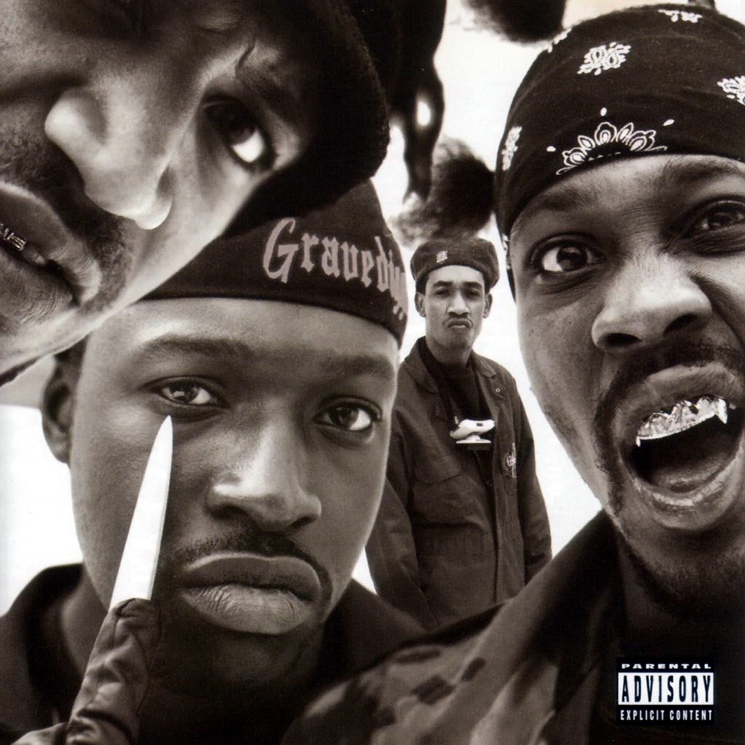
Gravediggaz is a group comprised of Prince Paul (The Undertaker), Frukwan (The Gatekeeper), Too Poetic (The Grym Reaper) and of course, the abbot of the Wu-Tang Clan himself, RZA (The RZArector). The group, and namely this incredible debut record, pioneered the horrorcore genre.
Throughout this album's tracklist, RZA is the absolute sharpest he has ever been lyrically, and his flow is refreshed and refined to match. He is right at home over the Prince Paul production, and the record sees him committing to the concept and content so convincingly that it can be borderline disturbing. While it's not necessarily a Wu-Tang release, it would be criminal to omit it from this list, given RZA's stature in the group and just how integral this release is to his discography.
7. Ghostface Killah feat. Raekwon and Cappadonna
Ironman (1996)
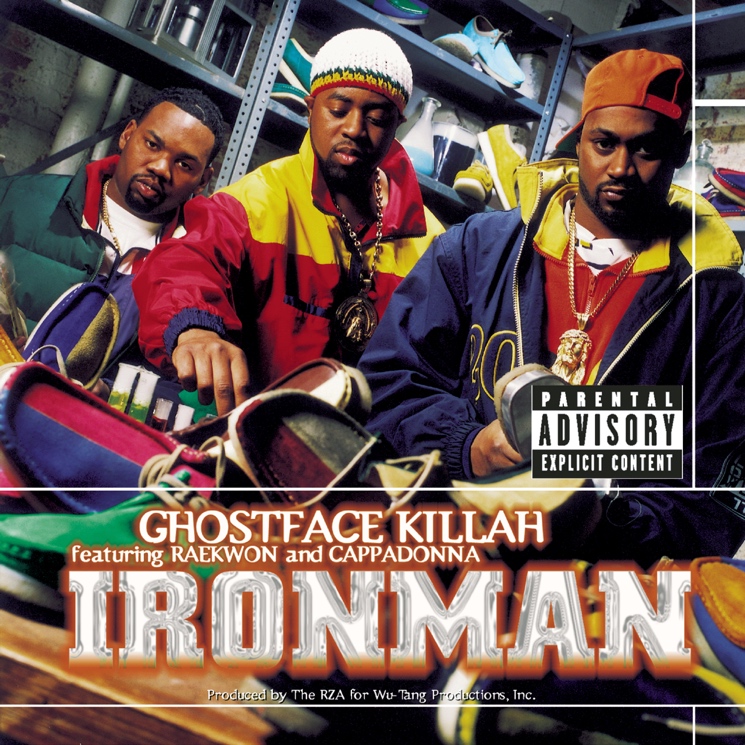
Ghostface's debut album, Ironman, is one of the most interesting records in the Wu-Tang catalogue. In spirit, it feels a bit like an unofficial successor to 1995's Only Built 4 Cuban Linx — not in its themes or content, but rather in the continued partnership between Ghostface and Raekwon, as the pair continue to develop outside of the confines of Wu-Tang Clan. Simultaneously, it serves as a fitting origin story for Ghostface as a solo artist.
While the songs on here swing from one extreme to the next in terms of tone, the lyrical dexterity Ghost showcases throughout keeps the album feeling consistent. As a result, some of the best songs in the entire Wu-Tang anthology are present here, from the hard-hitting "Daytona 500" (featuring Raekwon) to the tender reminiscing on "All That I Got Is You." Ghostface doesn't miss a beat throughout the entirety of the LP.
6. Ol' Dirty Bastard
Return to the 36 Chambers: The Dirty Version (1995)
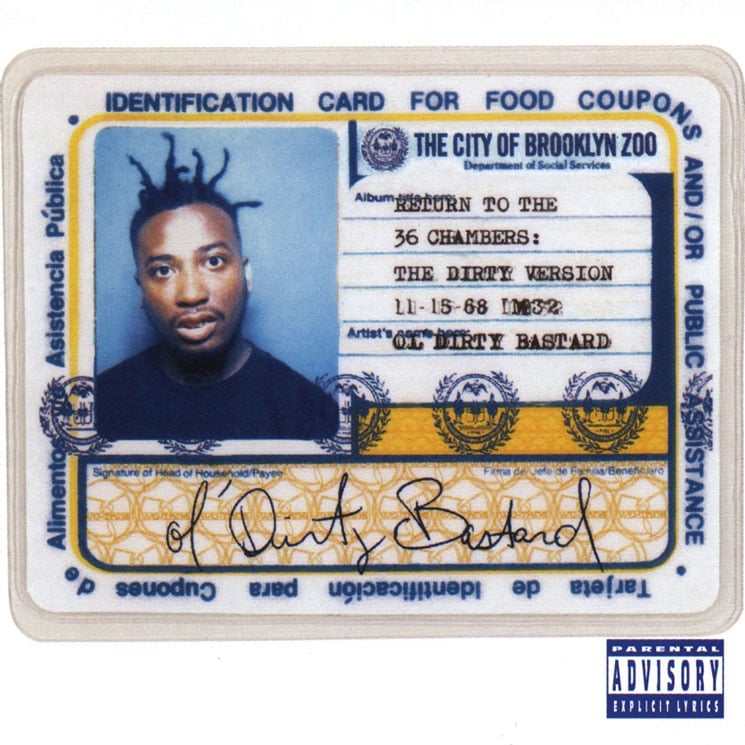
Ol' Dirty Bastard is individuality personified. From the very beginning, Wu-Tang Clan emphasized that he is the ODB because there is no father to his style, and this album is the only proof needed to back up that idea.
The record somehow fuses the conventions of Wu-Tang's signature sonic palette with ODB's off-kilter, half-sung/half-rapped style and a unique comedic sensibility that remains consistent without ever hindering how seriously the album is taken. ODB finds his home somewhere in between hardcore hip-hop conventions of the early '90s and the raunchy comedy of Laff Records' 1970s catalogue, and he thrives in this space.
There is an undeniable charm to the slurred, sporadic speech that ODB strings together on every track. His vocals are incredibly dynamic, ranging from zany, catchy hooks to verses that resemble unhinged, raspy streams of consciousness. Return to the 36 Chambers: The Dirty Version is a singular experience that has never been duplicated, much like Russell Jones himself.
5. Wu-Tang Clan
Wu-Tang Forever (1997)
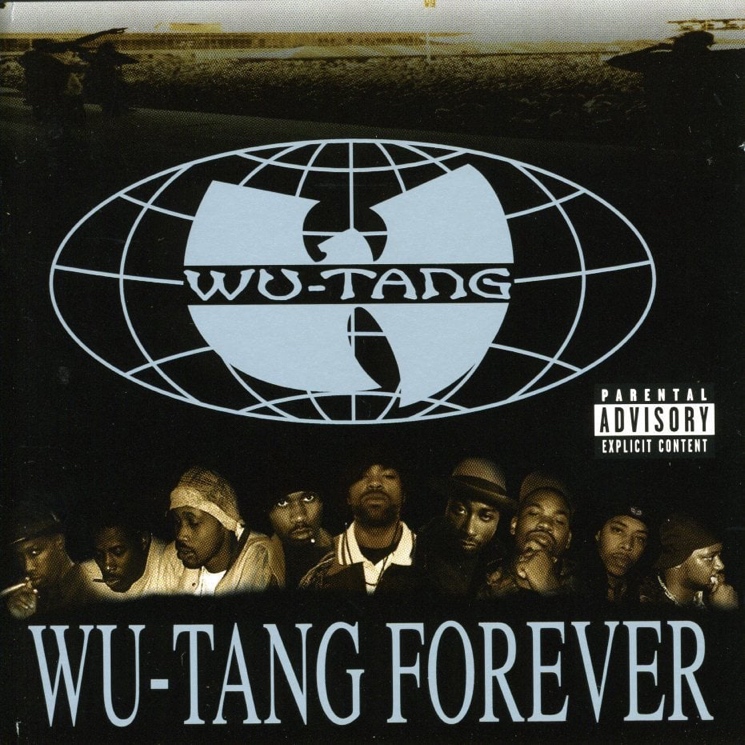
When Wu-Tang Clan finally reunited for their full-length sophomore group effort, it was nothing short of a triumph. The 27-track double album somehow manages to avoid feeling bloated or overindulgent, instead using the format to highlight the individual members, as well as the strength in numbers that occurs when they come together as a unit.
While their debut brought forth the essence of what makes Wu-Tang who they are, this nearly two-hour affair is the culmination of all of the work they had put in over the four years that followed. They are at their collective best here, and RZA choosing to embrace live orchestral instrumentation is a welcome and logical next step for a group whose signature sound was predicated on sampling string sections and warping them to fit their aesthetic. The rapping on this project is spectacular throughout, with each member going full-throttle whenever they step to the mic, making for some of the group's most iconic tracks, including the fan favourites "Triumph" and "Reunited," along with many, many more.
In an era in which 2CD releases were becoming commonplace in hip-hop, nobody approached the format with more purpose and focus than Wu-Tang Clan. Beyond that, the manpower behind the group provided them with enough variety to keep it interesting.
4. Ghostface Killah
Supreme Clientele (2000)
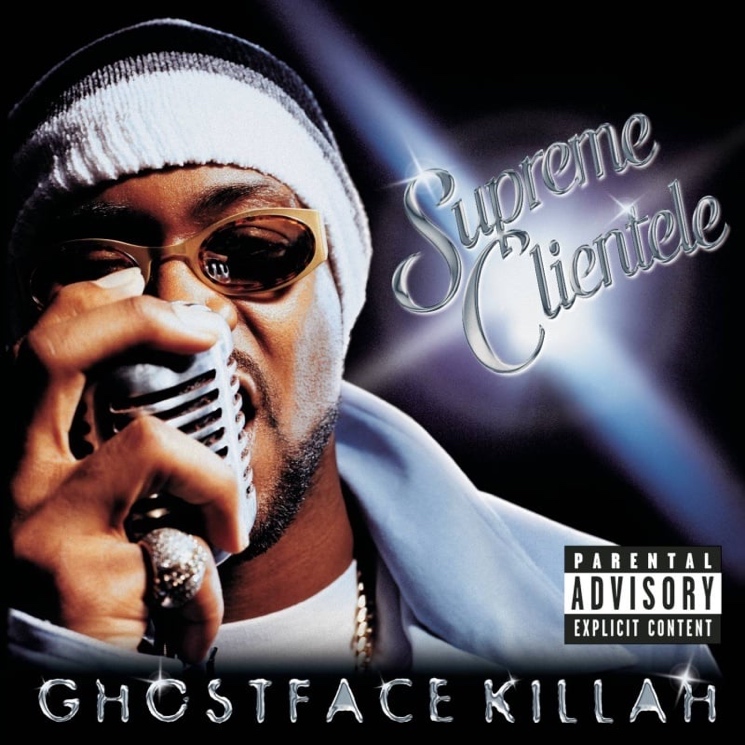
Ghostface has remained the most consistent member of Wu-Tang Clan, and Supreme Clientele finds him at the absolute height of his powers.
Ghostface possesses incomparable bravado and charisma, with a fluid flow and an uncanny ability to warp and bend the English language to his will. This makes for some of the most creative and inventive writing ever heard in hip-hop. He is a true one-of-one talent, and his arsenal of verbal weaponry is on full display here. From the glamorous extravagance of "Nutmeg" to the tangible confidence of the grimy "Mighty Healthy," Ghost is constantly firing on all cylinders. The production here, even with a few cooks in the kitchen, manages to be a cohesive canvas that presents Ghost with the perfect opportunity to paint his vivid verbal pictures, getting as lyrically creative as he's ever been.
3. GZA
Liquid Swords (1995)
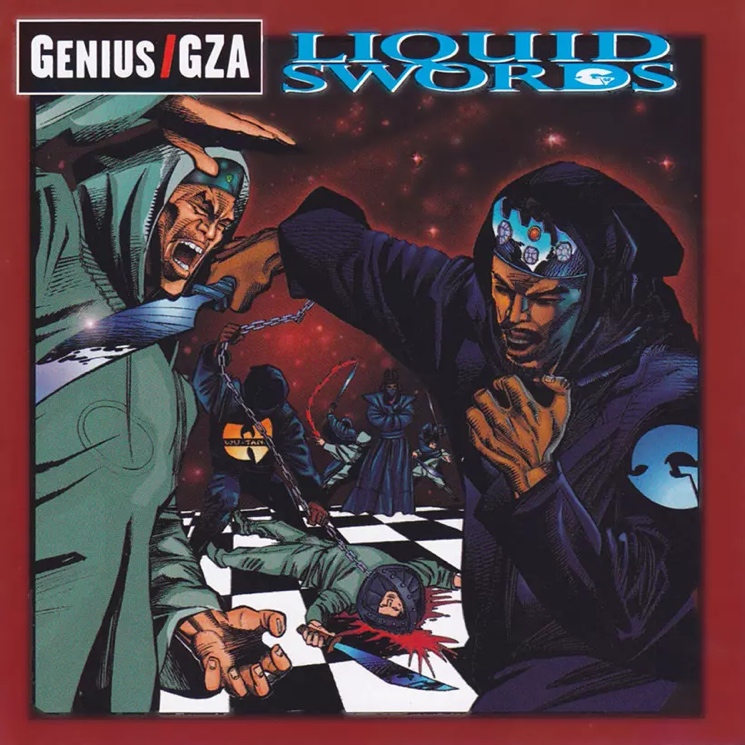
On Wu-Tang's debut, Method Man notes that, while RZA is the abbot of the group, GZA serves as the head. With Liquid Swords, it becomes clear that he is the heart of the group as well.
There's something about him – his intellect, his cadence, his lexicon and his ability to craft a world – that makes his music, and this LP specifically, feel like a lived-in experience. There's a pulse to the album, a heartbeat built from samples of the classic martial arts film Shogun Assassin in conjunction with the dark and airy RZA-produced atmosphere that gives this LP life and an incredibly cinematic feel.
GZA is at his best here, with dense lyrics referencing everything from industry politics to philosophy to chess, showcasing his excellent writing and distinct delivery, imparting wisdom to the listener. The album showcases a mastery of everything that characterized Wu-Tang to that point, resulting in a project that is nothing short of perfection.
2. Raekwon guest starring Ghostface Killah
Only Built 4 Cuban Linx (1995)
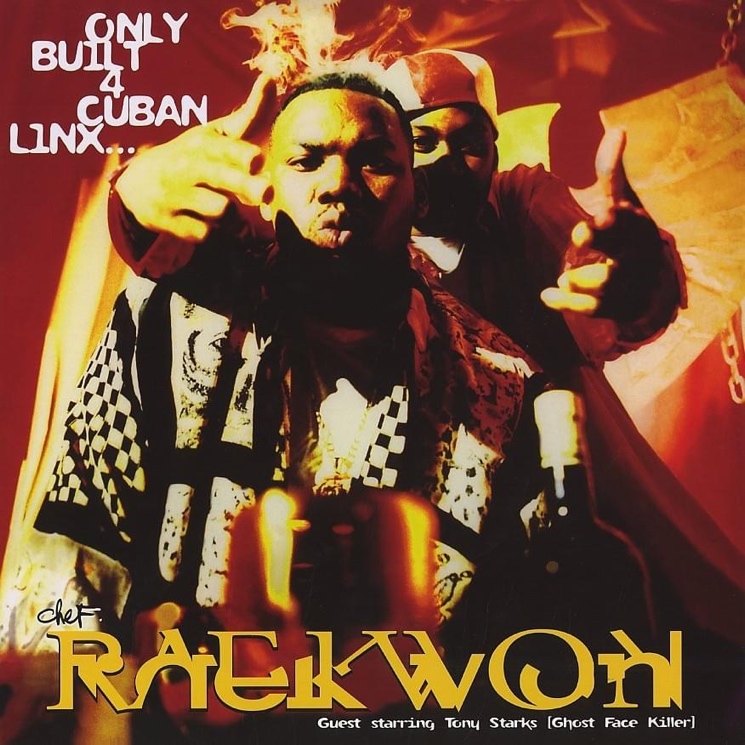
Only Built 4 Cuban Linx is the cream of the crop, one of the greatest hip-hop albums of all time. There is a palpable energy on this record that has yet to be duplicated, despite numerous attempts. The LP serves as the moment that encapsulated and perfected the mafioso rap style that became prevalent for years to come, being adopted by everyone from Nas to JAY-Z to Biggie.
At its core, this is a Scorsese-esque crime drama, with Rae, Ghostface and company adopting their Wu-Gambino personalities and painting pictures with their pointed lyrics. In addition to the immaculate conceptualization and writing on this project, this is undoubtedly RZA's best work as a producer. There is a consistency in the quality and tone of the soundscape that few have matched in the decades since. In a group anthology rife with perfect or near-perfect solo records, this is the true crown jewel of the bunch.
1. Wu-Tang Clan
Enter the Wu-Tang (36 Chambers) (1993)
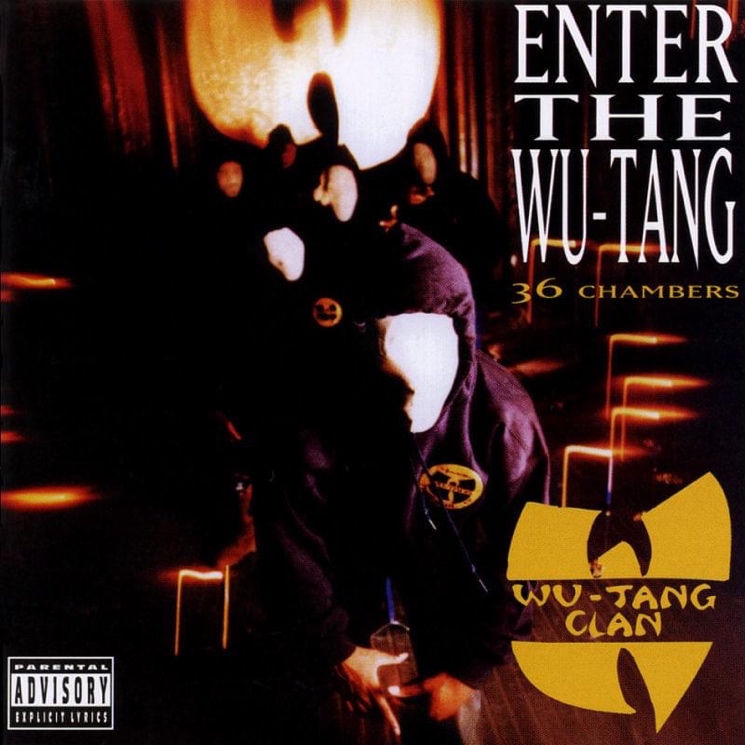
"It's like this, I'ma start from the top," Method Man states as the sombre "Can It Be All So Simple" winds down, transitioning into an interview clip that serves as an intermission. He begins running down a list of each member of Wu-Tang Clan, earnestly explaining their nicknames and individual strengths, concluding that, when the group comes together, they combine their power to form a single, all-powerful being — "like Voltron" — and that statement is authenticated throughout the entirety of this project.
What RZA accomplished as the founder and leader of Wu-Tang Clan is unbelievably impressive. He not only helms the entirety of the immaculate production of Enter the Wu-Tang and contributes verses throughout, he also somehow manages the impossible task of bringing together nine different artists with differing personalities and styles to create a singular vision. There is a synergy present within this record that has not been matched or duplicated by a group since its release.
Posse cuts like "Protect Ya Neck" see the group in fierce but healthy competition with one another, with each member trying to outdo the last, ultimately bringing the absolute best out of one another. Songs with fewer rappers — like "Method Man" or the timeless "C.R.E.A.M." — put a spotlight on select members of the group, giving them a chance to shine on their own. Even the interludes showcase the camaraderie of artists who understand how much better they are when they come together.
Much like the members themselves, every aspect of this LP — from the grainy samples of dialogue from old-school kung-fu flicks to the gritty, unpolished soundscape that RZA pieced together on his SP-1200, to the razor-sharp rhymes brought forth by all nine members — is exemplary.
There's a reason why this album is one of the most highly-regarded rap albums ever. It's the same reason labels were clamouring at their doors to sign each of them to solo deals. and it's a reason that Raekwon lays out very simply: it's just that "the Wu, the Wu's got something." Whatever that "something" is, it's as undeniably captivating today as it was 30 years ago.